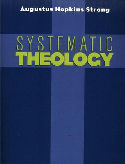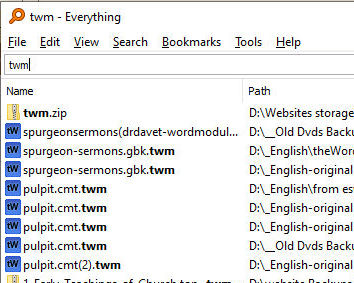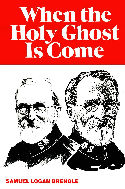Posted by David Cox on February 16, 2023
Posted in Campbellites • J | Tagged With: Campbellism, Church of Christ, Disciples of Christ
Jeter Campbellism Examined is an evaluation of Campbellism, the Church of Christ.
Jeter Campbellism Examined
By Jeremiah B. Jeter
Profile of Alexander Campbell
Alexander Campbell (1788-1866) was a U.S. religious leader and one of the founders of the Disciples of Christ and Churches of Christ. Born in County Antrim, Ireland, he was the son of Thomas Campbell (1763-1854), a Presbyterian minister who urged Christian unity. In 1807 Thomas Campbell emigrated to America, where he formed the Christian association of Washington, Pennsylvania, to promote “simple evangelical Christianity” as the way to church union. Following a breach with Presbyterianism he produced a Declaration and Address for the association in 1809. Alexander Campbell, after a year at the University of Glasgow, emigrated with the rest of the family in 1809 to join his father. Like his
father, he espoused Christian unity and emerged as the leader of a movement for religious reform. He began preaching, without a salary, in 1810 and married in 1811, settling in what is now Bethany, West Virginia. Biblical study led him and his followers to adopt baptism by immersion in 1812, and in 1813 they joined the Baptists; but tension on other issues led him to break with the Baptists in 1830. In 1832 Campbell’s followers, known as Disciples, or Christians (nicknamed Campbellites), joined Kentucky “Christians” under Barton W. Stone (q.v.) to form the Disciples of Christ, or Christian Church.
Influenced by John Locke’s theory of knowledge, Campbell presented a rationalistic and deliberative Christianity based on the New Testament but opposed alike to speculation and emotional revivals. He exercised his leadership through preaching, addresses and debates with the Roman Catholic bishop John Purcell of Cincinnati, the secularist Robert Owen of Scotland and others.
Campbell’s major writing and publishing began with a periodical, the Christian Baptist, in 1823, continued as the Millennial Harbinger after 1830. He wrote or edited over 60 volumes, including The Living Oracles, a version of the New Testament first issued in 1826, and a hymnal. Thomas Campbell gave his son extensive editorial assistance. Alexander Campbell was a member of the constitutional convention of Virginia in 1829. He founded Bethany college in 1840, and was its president till his death. In 1849 he became the first president of the first national convention and missionary society of the Disciples of Christ. Managerial ability and scientific methods of farming brought him wealth, and his home, with much original furniture and decoration, still stands, open to the public. Read more



 Helpful Windows User Tip for "Searching Everything" on your PC.
Helpful Windows User Tip for "Searching Everything" on your PC.